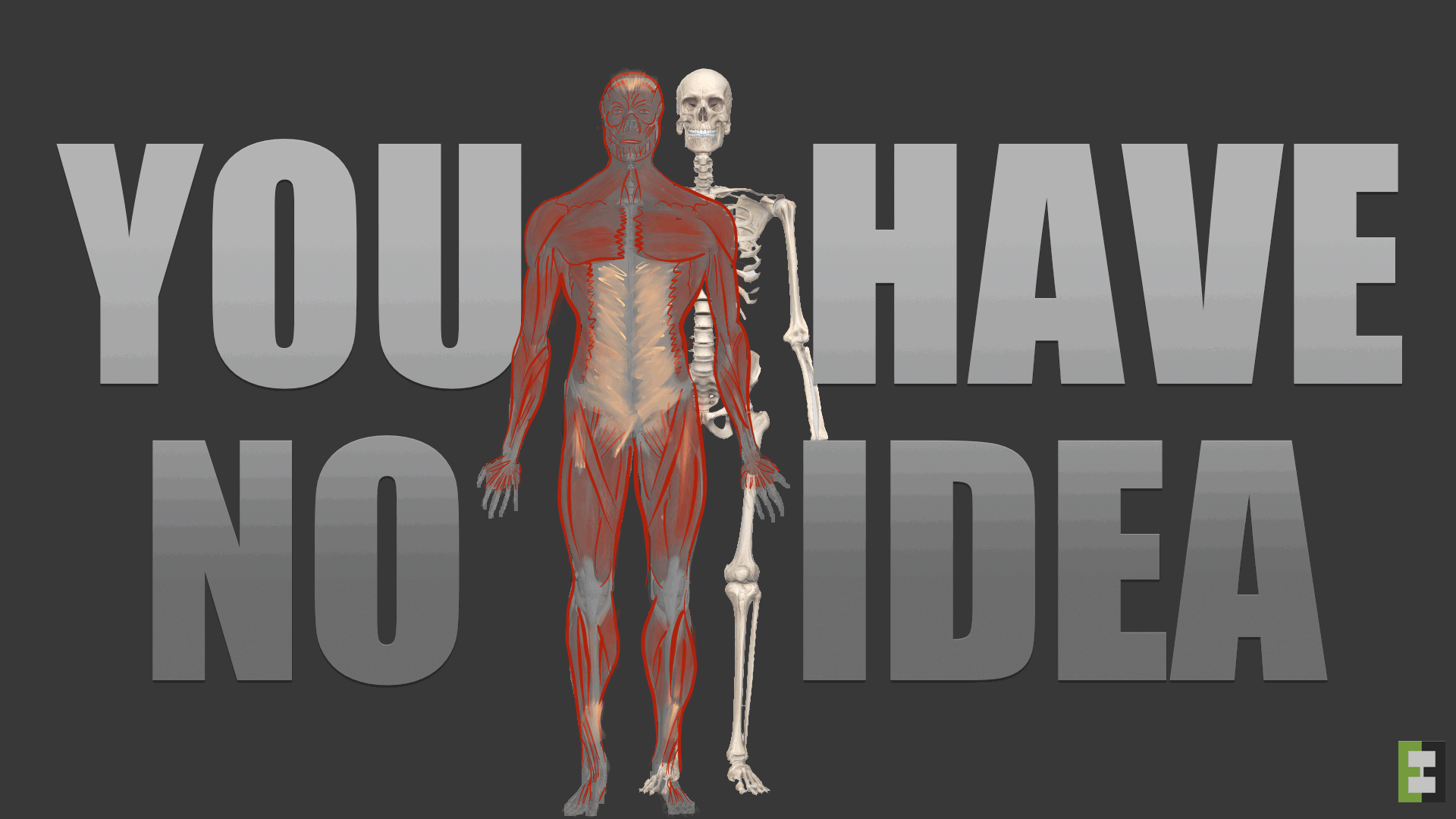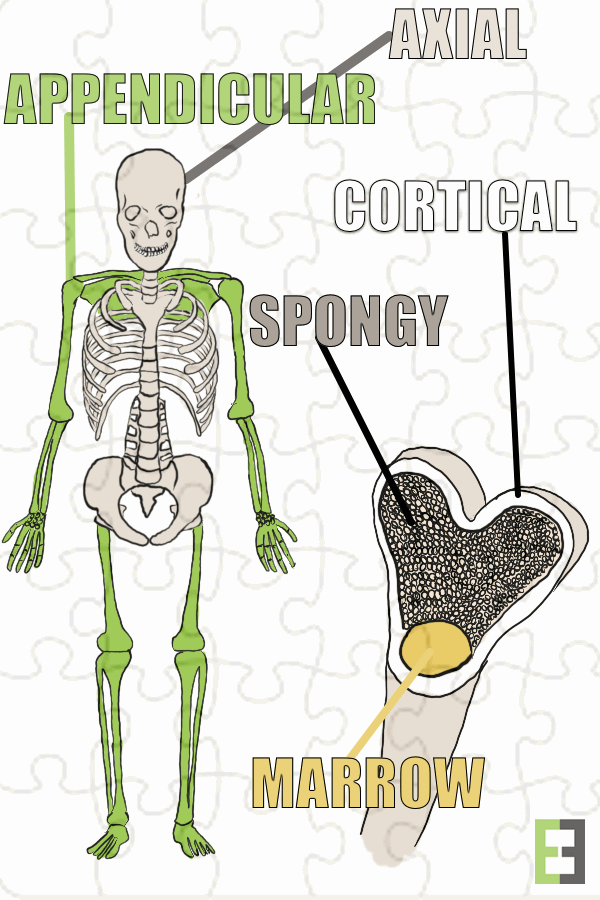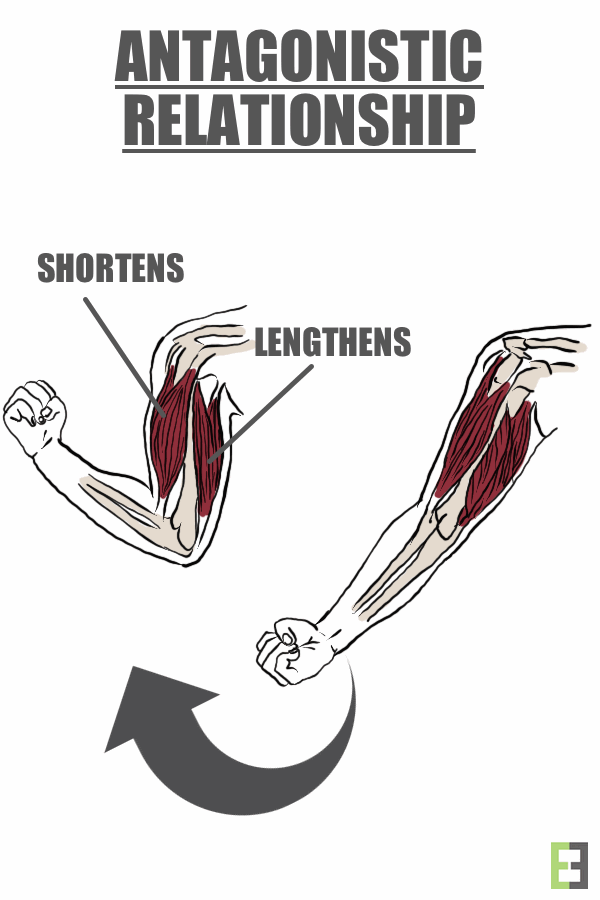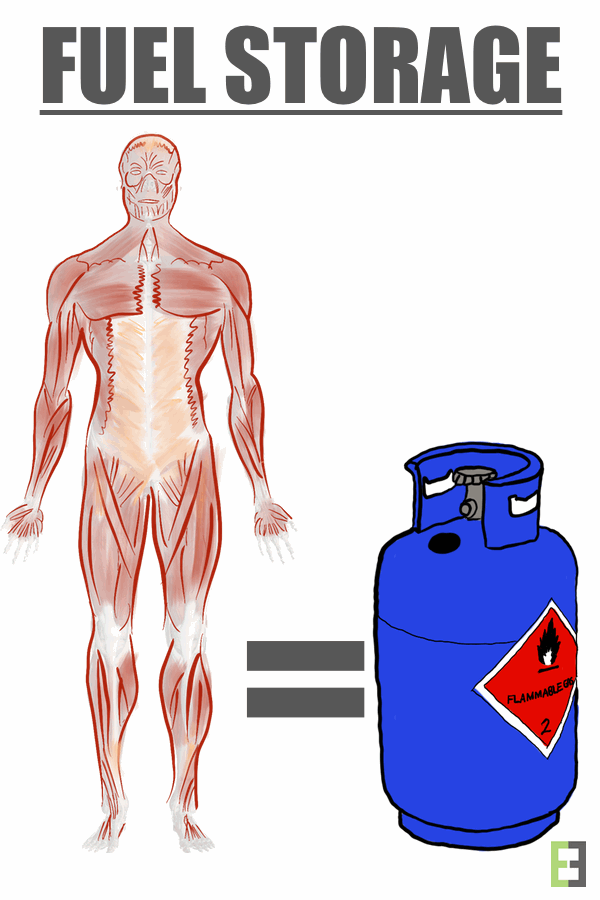The Beauty of the Muscular Skeletal System

The muscular skeletal system is what gives human beings their shape and size. It is the primary ascetical difference which differentiates the groups of vertebrates. There is, however, more than meets the eye when it comes to this system.
The muscular skeletal system comprises the skeletal and muscular systems, intertwined into one. We will first look at each individual part and then see how they work in unison.

Skeleton
The human skeleton is divided into the axial and appendicular sections which together make up 200 bones. An additional 6, tiny bones of the middle ear, brings the grand total to 206, (Clarke, 2008).
The bones come in different shapes and sizes and fit together like a puzzle to make up the foundational frame which ultimately houses every other anatomical system.
Bones seem solid from the outside, but a cross-sectional analysis shows a hard outer covering called cortical bone and an internal spongy matrix of cancellous bone, (Dwek, 2010). The outer part acts like the bark of a tree and helps bones maintain their structural integrity as well as endure the many forces acting on them.
The inner parts are filled with white blood cell producing marrow which fuels the immune system with pathogen-fighting T and B-cells. Bone marrow also produces red blood cells used to oxygenate the body.
The bone matter is predominantly made from minerals such as Calcium and a gelatinous protein called collagen.
Bones are constantly being eaten up by osteoclast and new bone being laid down by osteoblasts. This process is called bone remodeling or turnover. The phenomenon is in constant progress, and every few years, 100% of old bone is turned over.

Muscle
Skeletal muscle makes up 45% of the total human tissue, (Dott et al., 2014). These muscles attach to the cortical bone and help hold all the pieces of the skeleton in place.
Muscles are always located in pairs on opposite sides of bones. They form an antagonistic relationship with one another. When one muscle contracts, the opposing side lengthens. Skeletal muscles ability to lengthen and shorten and the synergy to which they do this is what allows them to move body parts, (Information about the Musculoskeletal and Skin Systems, 2007).
Muscle is the bodies largest storage compartment of glycogen, a fuel used in the aerobic and anaerobic activity. Whether you are sprinting away from a hungry canine, running for fun or following your dream of looking like Arnold Schwarzenegger, muscle tissue hold the energy to do so.

Skeletal muscles are crucial to the bodies ability to regulate its core temperature, as heat is a by-product of energy produced in them, (Dwek, 2010). Shivering in cold conditions is evidence of the muscle's ability in increasing body temperature through micro-contractions.
Similar to the bone, muscle tissue is always being repaired and grown through a process called protein synthesis.
Looking at the muscular-skeletal system as a whole you can compare it to a car where the bony skeleton makes up the chassis and the muscles power it like an engine.
I wish everyone a Merry Christmas and many happy returns!
Follow me @exercisinghealth for more.
Sources:
Clarke, B. (2008). Normal Bone Anatomy and Physiology. Clinical Journal of the American Society of Nephrology, 3(Supplement 3), pp.S131-S139.
Dott, W., Mistry, P., Wright, J., Cain, K. and Herbert, K. (2014). Modulation of mitochondrial bioenergetics in a skeletal muscle cell line model of mitochondrial toxicity. Redox Biology, 2, pp.224-233.
Dwek, J. (2010). The periosteum: what is it, where is it, and what mimics it in its absence?. Skeletal Radiology, 39(4), pp.319-323.
Information about the Musculoskeletal and Skin Systems. (2007). National Institutes of Health (US).
Jensen, J., Rustad, P., Kolnes, A. and Lai, Y. (2011). The Role of Skeletal Muscle Glycogen Breakdown for Regulation of Insulin Sensitivity by Exercise. Frontiers in Physiology, 2.
Parfitt, A. (2002). Misconceptions (2): turnover is always higher in cancellous than in cortical bone. Bone, 30(6), pp.807-809.
*All pictures were created by @exercisinghealth
A nice, entry-level A&P post, good summary of the topic. I wish I had had a better understanding of the relationships between the pairs of muscles when I played sports more often. I found out once I learned more with strength training that I was imbalanced in some of these pairs and opened myself up for injury. I work closely with physical and occupational therapists and it has been invaluable for learning what muscles to focus on for best overall mobility later in life.
Thank you!
You are 100% correct. Understanding the biomechanics of movements, go a long way to improve on inefficiencies and ultimately reduce injury.
Good post, I hadn't realized all my bone would be 'remade' within a few years!
If muscles are always found in pairs, then I guess when working out we should try to do complementary workouts (a pair of different workouts for a pair of different muscles)? Or maybe a single workout is enough for 1 pair of muscles since lots of workouts, I guess, 'push' forward then 'pull' back...
You got a 4.62% upvote from @upme requested by: @exercisinghealth.
Send at least 1.5 SBD to @upme with a post link in the memo field to receive upvote next round.
To support our activity, please vote for my master @suggeelson, as a [STEEM Witness](https://steemit.com/~witnesses
This post has received a 95.95% upvote from @msp-bidbot thanks to: @exercisinghealth. Delegate SP to this public bot and get paid daily: 50SP, 100SP, 250SP, 500SP, 1000SP, 5000SP Don't delegate so much that you have less than 50SP left on your account.
This post has received a 9.36 % upvote from @buildawhale thanks to: @exercisinghealth. Send at least 1 SBD to @buildawhale with a post link in the memo field for a portion of the next vote.
To support our daily curation initiative, please vote on my owner, @themarkymark, as a Steem Witness
@exercisingheaalth 10$ added